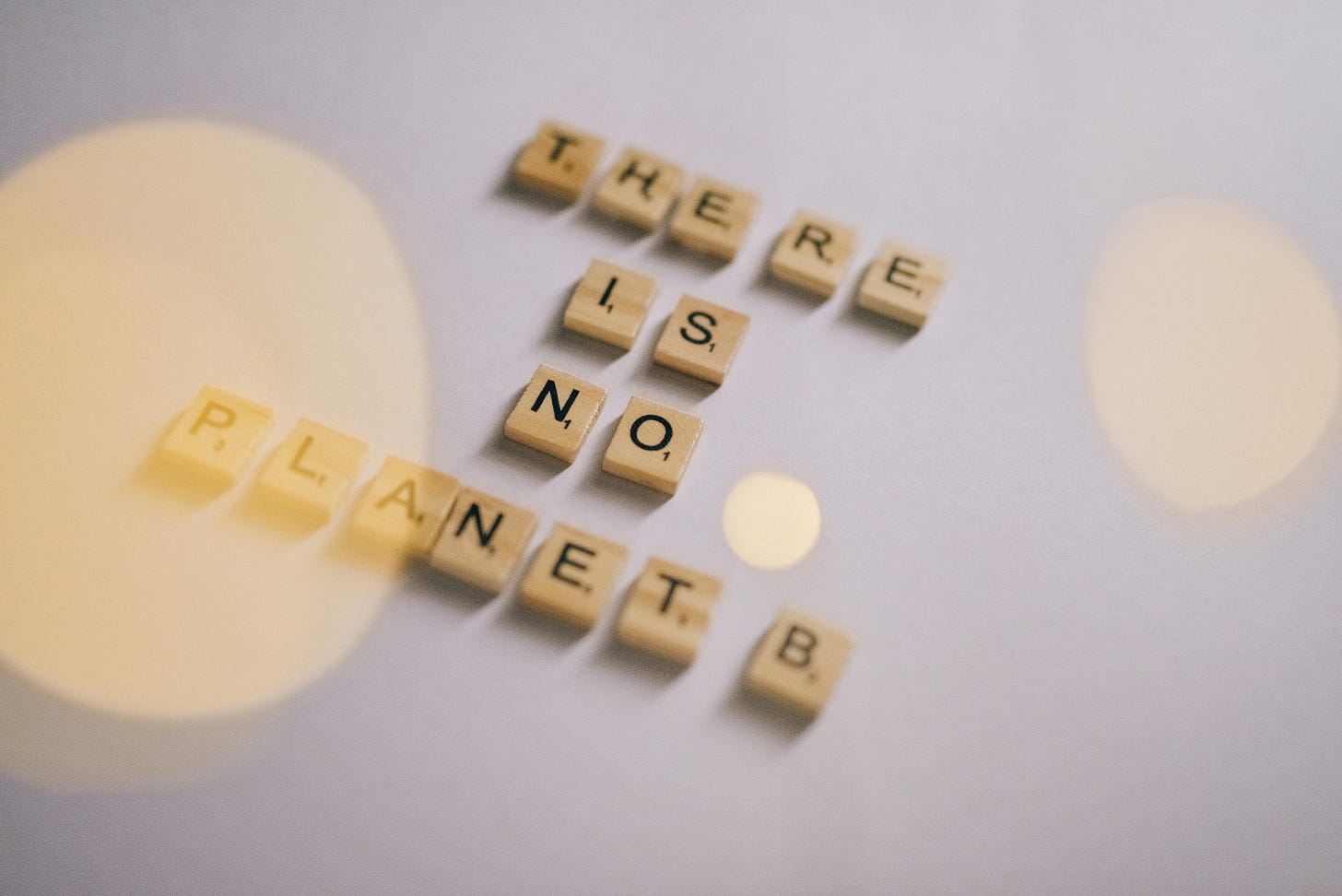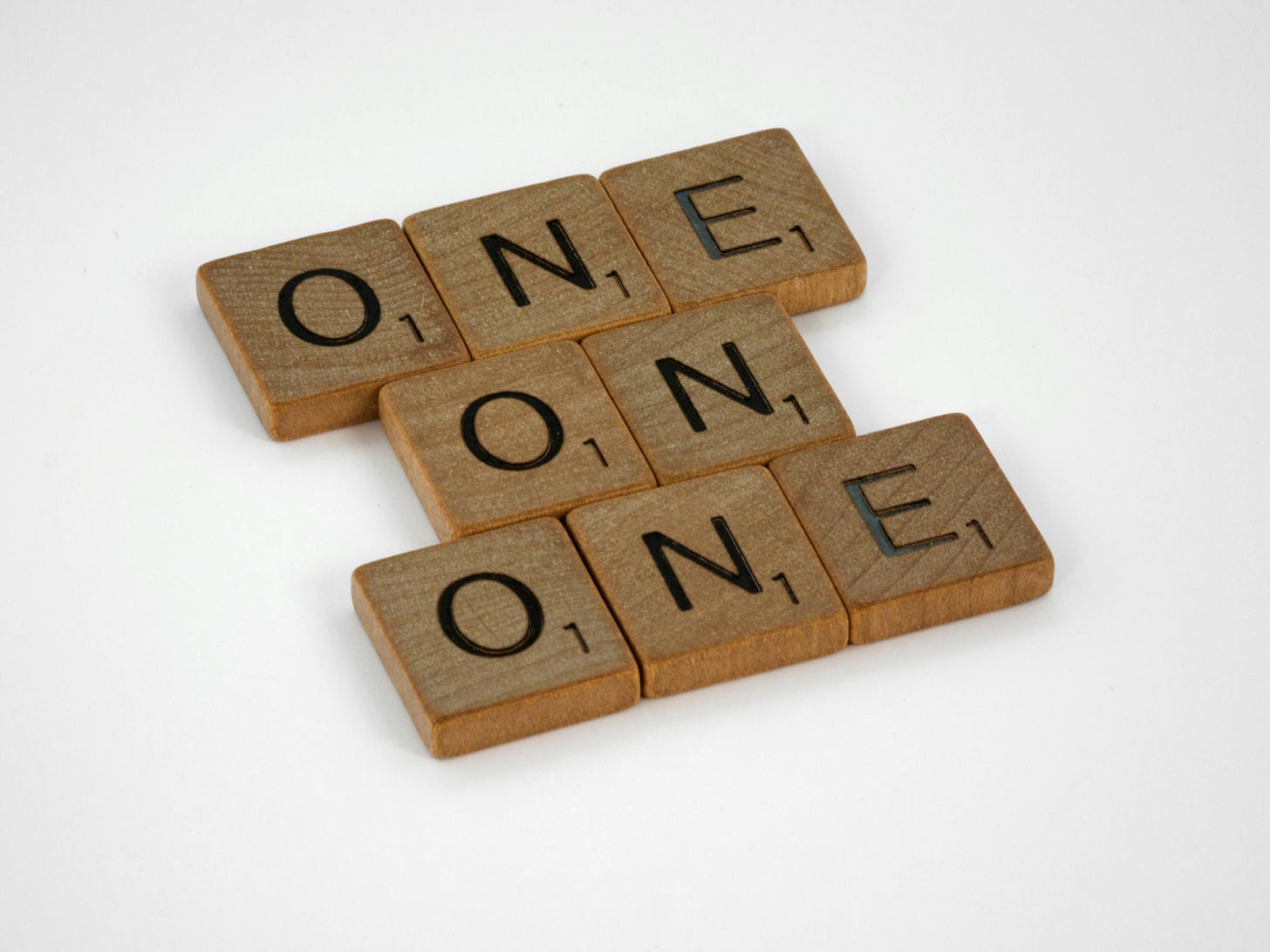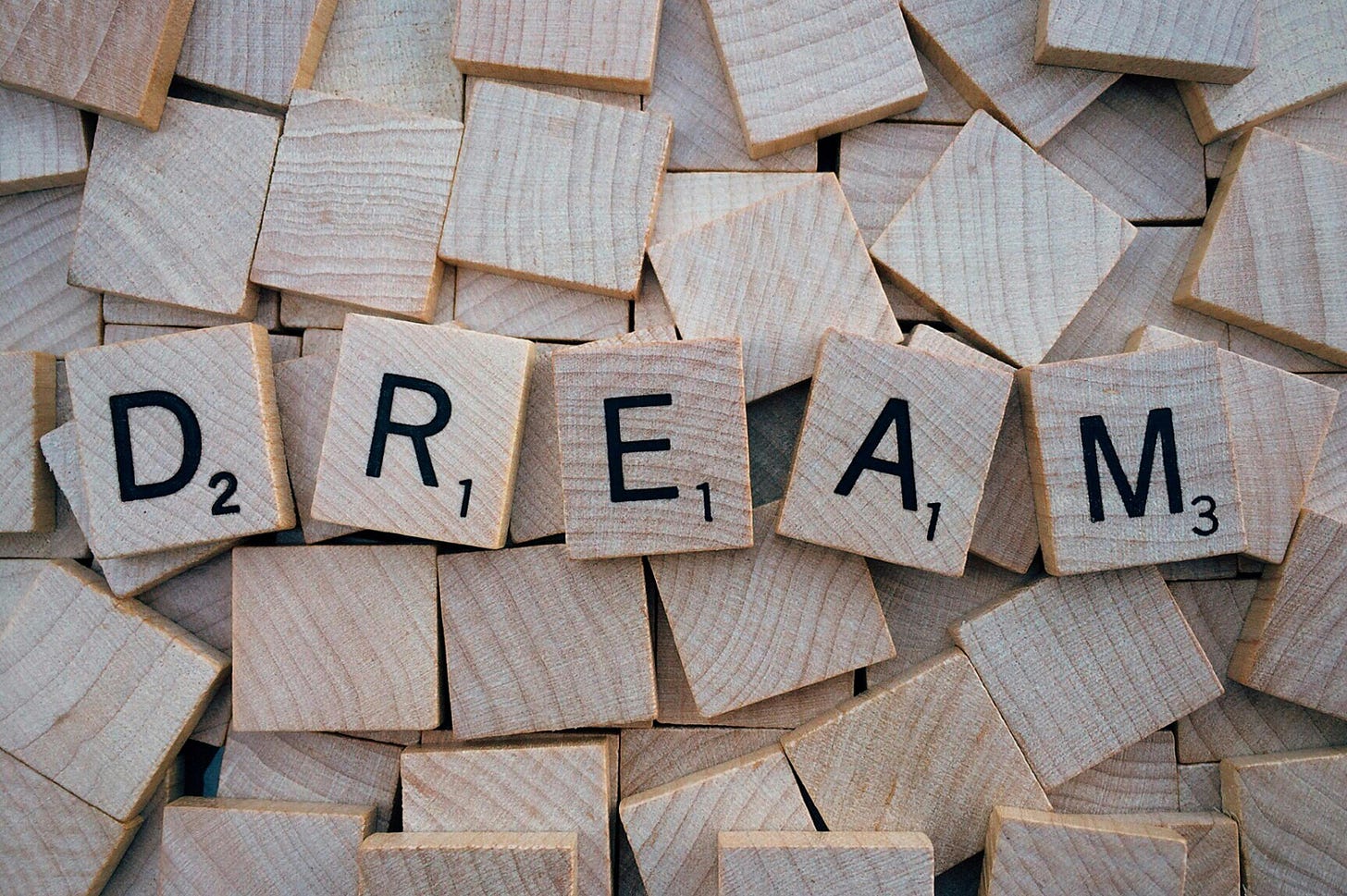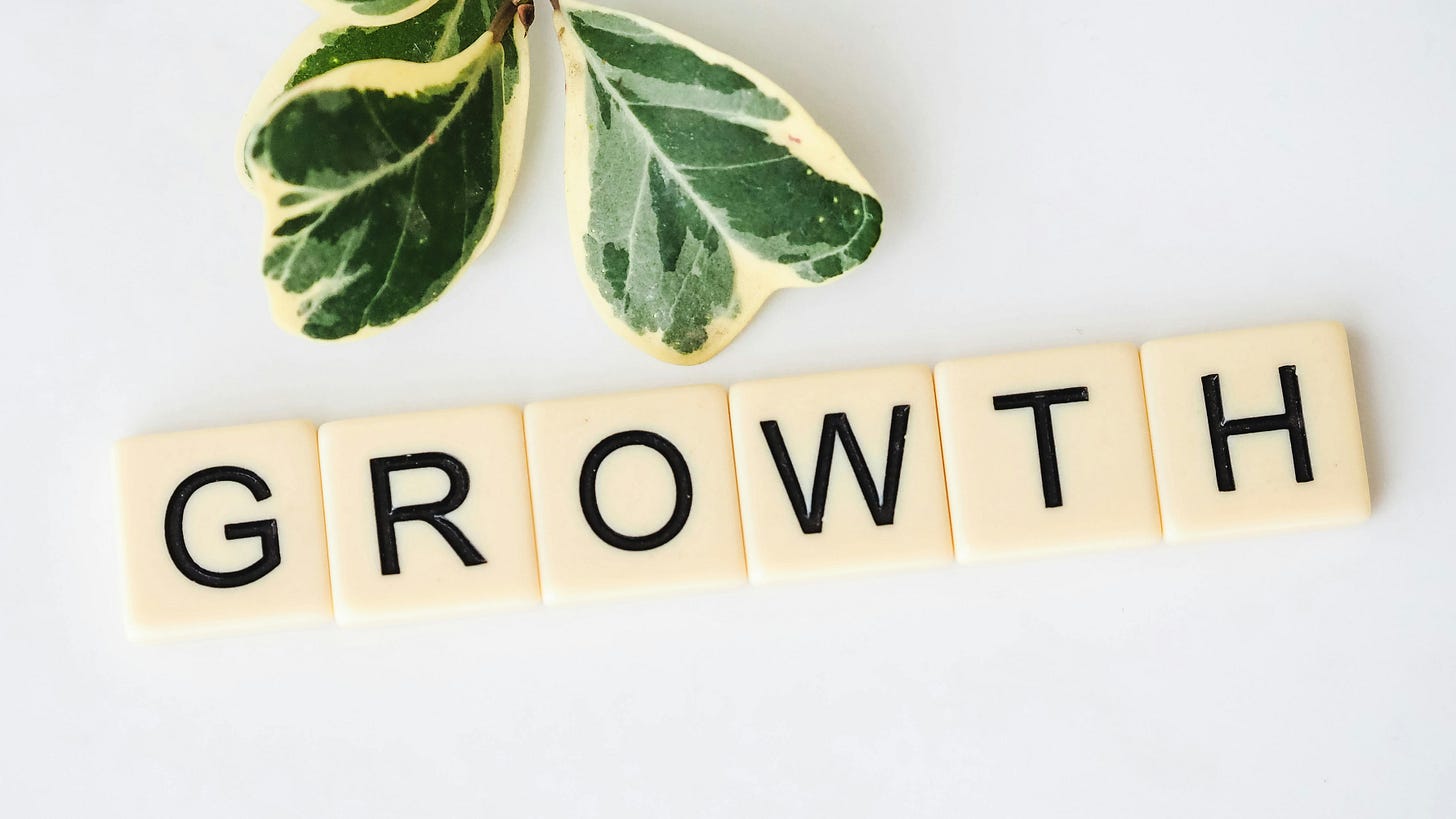Emily’s Husband
Climate-conscious storytelling that promotes ecological awareness and a sustainable living by Jan Lee
“Me? I’m Mister Emily Tang,” he smiled. As a spouse, he’d been registered under my name; his tag failed to reveal his own.
Behind him, a digital display read, “Innovant Solar Industries Limited - Let’s Celebrate 2048!”
Takeshi raised his own hand in turn, and they sized each other up. Men! I shook my head.
“The mysterious husband exists!” Takeshi said. “Glad you could make it.” He signaled to the passing serverbot and grabbed a full wine glass. “So what do you do?”
My husband hated this question, so I stepped in. “He takes care of our house! Such a hero. During last week’s flood, he spent all night reinforcing our walls, and we didn’t get a single leak.”
Takeshi was impressed. “Really? I heard you had a three-meter surge down there in Singapore.”
My husband nodded and grabbed a canape. “We managed. Have you tried the ‘faux gras’ yet?”
Takeshi shook his head. “No, we don’t have it at this location.”
I apologized, “The team tries their best for these parallel events, but sometimes you can’t fully replicate the menu.” Just at that moment, Takeshi’s image flickered, as if to remind me that it was all virtual. The two hotel function rooms, one in Singapore and the other in Tokyo, weren’t really in the same space.
“It’s hard to let go of traditions,” my husband agreed. “But even in Japan, I’m sure nobody believes beef has a viable future. Do they want to go back to the bad old days, when cattle were emitting two billion tons of greenhouse gases every year?”
Takeshi nodded. “You’re right. So did you also come from an energy background?”
“I started out in energy,” he replied, “but not in solar, like you.”
Takeshi raised an eyebrow. “Oh, which area? Wind?”
“Oil and gas,” my husband admitted with a dry laugh.
The embarrassed silence lasted for longer than usual. “We’ve forgiven his youthful indiscretions,” I joked at last.
Takeshi drained his glass and returned it to an invisible sideboard. “Anyway, I heard Taiwan is getting hit hard. Twenty-two typhoons last season.”
My husband shook his head. “Makes me glad we live next to the equator!”
“Even though you can never go outside?”
“Oh, we go outside at night,” I pointed out. “Oh, sorry, looks like it’s time for the boring part of the evening.”
Takeshi explained, “She always says that when she’s about to make a speech. But she decides our bonus payments, so we know better.”
“Thank you for taking the time out of your busy schedules to attend this celebration,” I began as the noise subsided. “And we have a lot to celebrate!” Around the virtual space, and in function rooms up and down the Pacific rim, my colleagues refilled their glasses. “We’re proud of our annual results. But most of all, we’re celebrating the announcement by the United Nations that as of last year, our human society has at last reached net zero!”
Applause and cheers erupted, and I continued. “And we’re celebrating the role Innovant Solar has played in this achievement.”
My husband wore a curious expression; it was rare for him to see me in my passionate work persona. He only saw my fatigue at the end of the day. Were our sacrifices worthwhile, I wondered, when the sea levels were unlikely to return during my lifetime to where they’d been when I was a child? So much damage was already done.
My colleagues were waiting for me to continue. “Times are tough. But thanks to the work that we do at Innovant Solar, our children no longer need to worry whether there will be a future at all.”
I wrapped up the speech. There was so much applause, from so many directions, that it exceeded the capacity of my neurodirect implant and distorted the sound.
All of our homes were still in terrible danger. My children had never known a time when it was safe to go outside during daylight hours. The Arctic ice was all but gone.
Yet they continued to cheer, and at last I returned their enthusiasm. I understood: this wasn’t happiness with the way things were going right at this moment; this was the satisfaction of being part of the solution.
My husband was off in the corner with Takeshi’s simulacrum, doing shots. He’s going to have a hell of a hangover in the morning, I thought. Men! Engaged in the ritual, he failed to observe me as I wandered to his corner.
“It’s all because of Emily,” he was telling Takeshi. “She’s thinking ahead before anyone even realizes there’s something to think about. We’ve reached Net Zero because of people like her.” The men raised their glasses, whooped, and pummeled their chests.
I laughed out loud – I’d caught him boasting about me!
And in that moment, I understood: he was not only happy to bear his funny name badge; he wore the title of “Mr. Emily Tang” with pride. He knew that what he did for our family had an impact beyond himself, beyond any of us.
I repeated the last lines of my speech to myself: Yes, things look bad now. But at last, we can say with confidence that we know they’ll get better.
Living with Better Choices Toward Achieving Net Zero
If the story of Emily’s Husband showed us anything, it’s that behind every visible triumph is a lattice of small, personal shifts. Net Zero wasn’t achieved by the independent actions of governments or corporations. It was also the caregivers, the skeptics turned believers, and the consumers who began to ask harder questions. It was the people who said no to convenience and recognized choice bears the responsibility of consequence.
Yet even now, with Net Zero on the books, climate anxiety lingers. Perhaps because the threat remains it’s not progressive enough, or perhaps because of so many broken promises, we fear that progress is fragile.
Around the globe:
10% report feeling “nervous, anxious, or on edge several days per week” about climate change7
9% say they “can’t stop or control worry” about global warming7
In the UK, 6 in 10 are “very or extremely worried”3
Among Australian teens aged 15–19, 26% express “extreme concern”5
So what now? Neuroscience tells us the key is in doing, not waiting to feel differently. Action rewires our sense of agency. It shifts the story we tell ourselves from one of helplessness to hope. That’s why what we do next has to do more than tick a box. Our way forward must be grounded in research and built for real life, so that what we do today ensures that the applause at that 2048 gala isn’t a fantasy, it’s the celebration of our future.
7 Things You Can Do Today
When surrounded by doom about the environment, it can be hard to stay positive. Although, there is an alternative.
We can begin by understanding a radical but hopeful truth: action shapes our attitude, not the other way around. Neuroscientists have shown that even small, tangible efforts toward sustainability can rewire our emotional responses to climate change.2 This means the best way to fight the paralysis of eco-anxiety isn’t by reading more headlines—it’s by doing something, even if it's small.
Just like Emily Tang’s husband quietly reinforcing flood barriers or swapping out beef for “faux gras,” you take steps that travel outward. Here are seven grounded, impactful things you can do today to move us all closer to a sustainable future.
1. Reimagine Your Plate
Try: Plant-based Meals
A shift away from red meat and toward plants isn’t just about dietary restrictions; it’s for anyone with a palate and a conscience. Livestock, specifically through enteric fermentation, is responsible for about 33% of global methane emissions caused by human activities.4 While faux meat and dairy alternatives are a start, even simpler shifts consisting of grain bowls, seasonal produce, and plant-forward snacks can make a difference.
As Emily’s husband quipped over canapés, "Nobody believes beef has a viable future." He’s right. What we eat is one of the most immediate, intimate forms of climate impact. You don’t need to be perfect, just consistent.
Tips: Wherever you are, use the Eat Well guide and take the guesswork out of snacking.
2. Reject Excess
Try: Voting With Your Wallet and Your Cart
We have leverage as consumers, especially now when brands obsess over “sustainability” as both a trend and a threat. Do your research when you make a purchase to ensure you support companies with ethical and sustainable practices.
Takeshi and Emily's virtual toast celebrated systemic change, but it doesn't happen without consumer pressure. Change starts with what you buy or refuse to buy.
Tips:
Visit ewg.org, the premier resource for verifying eco-friendly brands and products, backed by the Environmental Working Group's rigorous research and standards.
Your personal green shopper: ewg.org/skindeep
Explore www.goodonyou.eco, your go-to resource for sustainable fashion research, which features innovative brands, transparent practices, and expert insights on conscious style.
Verify the eco-credentials of your home and building products with UL's ECOLOGO Certification, a trusted mark of sustainability excellence, backed by rigorous scientific testing and evaluation.
Consider Arbor of the Vine’s Eco Chic Travel Essentials guide: a digital workbook that blends wellness rituals, eco-conscious packing tips, and prompts to help you prepare for travel with intention. Whether you're heading to a spa retreat in the hills of Tuscany or planning a weekend reset closer to home, this guide brings clarity, beauty, and balance to your journey.
3. Rethink Your Role
Try: Making Sustainability Part of Your Job Description
Not everyone can be Emily Tang and work for Innovant Solar. However, there are ways to bring sustainability into our professional lives. Whether you’re a designer, accountant, teacher, or logistics planner, ask yourself: Where does sustainability intersect with my daily work?
Start by asking one pointed question at your next town hall. Offer one bold idea in your team chat. Request that your employer consider sustainable vendors or green certifications. Leadership often follows where courage leads.
According to De Meyer, the stories we tell about climate shift more effectively when rooted in action, not issue.2 Reframing your role as part of the solution changes how you see your job and how others see it too.
4. Reach Out to the People Who Matter Most
Try: Having Vulnerable, Honest Conversations
We often think policy is what shifts opinion, but research shows the opposite. One of the most effective ways to shift beliefs and change attitudes is direct, meaningful conversation with people we love and trust. Talk to your parents, your roommates, and your children, not with fear but with facts, and with hope.
Emily’s husband didn’t change because of white papers; he believed in climate work because of her. Be someone’s Emily. It may be the most radical act you can do. You might be surprised at who’s ready to make a change.
5. Raise Your Media Standards
Try: Reading media that inspires action.
Doomscrolling keeps us in survival mode. To feel encouraged, we need inspiration not just news. Make room in your feed for climate optimism, long-form nonfiction, and hopeful fiction like Fairhaven – A Novel of Climate Optimism.
Be intentional with the content you consume and share. In a world where skeptics twist facts as science fiction, we don’t need more excuses, we require purpose. We want stories that remind us there’s a real chance for salvation as long as we act.
6. Reflect on Your “Why”
Try: Asking yourself what’s worth saving, and what you stand to lose. Be honest.
Are you interested in sustainability because your community has already been displaced, you have current health concerns, or do you want your future family to breathe fresh air and drink clean water?
Understanding your why gives clarity to your actions. It creates a sense of direction and belonging when change brings uncertainty.
When your actions are anchored to personal meaning, you become resilient. Like the characters in our opening story, you find purpose even in the face of loss. You see yourself as part of something essential: the long, imperfect work of healing.
7. Reimagine Your Tomorrow
Try: Visualizing the future you want and live as if you're already there.
Picture 2048: Are you celebrating at a net-zero gala, toasting success, and highlighting accomplishments? Or are you still waiting for someone else to fix it? Everything we do today echoes into the decades to come.
In 23 years, the question becomes: When you remember 2025, will it be with regret and shame?
The festivities in the story may have been symbolic, but the joy was real. The characters lamented not perfection, but progress. That’s the key: to live today as if a better tomorrow is possible. Choose the version of yourself who made decisions that not only helped make Net Zero possible, but inevitable.
Personal Change. Valuable Impact. Zero Regret.
Real change - intimate, habitual, and daily persistence in compost bins and bike lanes. The path to Net Zero requires contributions from everyday people, in mindsets reframed and careers rerouted. People like you who show up, speak up, and live with better decisions made over breakfast, at checkout lines, and in conversations that shape culture.
Yes, there is a sense of urgency to do more. Earth passed the 1.5°C threshold in 2024. We endured 41 extra days of dangerous heat, and climate change is now the leading driver behind global displacement..1,6 Yet, the reason we haven’t lost everything is because people started doing mindful things, measurable things.
Don’t wait for Net Zero to come from some other source. Build it from where you are today in your home, in your workplace, in your mind, and within your story. For we’re not just surviving this century; we’re saving the next one.
This video has no sound.
References
Climate Central. 2024. "2024 Annual Climate Summary: Dangerous Heat Days and 1.5°C Threshold." https://www.climatecentral.org/
De Meyer, Katja, Erin Coren, Michael McCaffrey, and Casey Slean. 2021. "Transforming the Stories We Tell About Climate Change: From 'Issue' to 'Action'." Environmental Research Letters 16 (1). https://doi.org/10.1088/1748-9326/abcd5a
Hickman, Caroline, Elizabeth Marks, Panu Pihkala, et al. 2021. "Climate Anxiety in Children and Young People and Their Beliefs About Government Responses to Climate Change: A Global Survey." The Lancet Planetary Health 5 (12): e863–e873.
Nugrahaeningtyas, Eska, Jong-Sik Lee, and Kyu-Hyun Park. 2024. "Greenhouse Gas Emissions from Livestock: Sources, Estimation, and Mitigation." Journal of Animal Science and Technology 66 (6): 1083–1098. https://www.ejast.org/archive/view_article?pid=jast-66-6-1083
Orygen and Mission Australia. 2023. Youth Survey Report 2023. https://www.orygen.org.au
UNHCR (United Nations High Commissioner for Refugees). 2024. "Climate Change and Displacement." https://www.unhcr.org
Yale Program on Climate Change Communication. 2023. Climate Change and the American Mind: April 2023. Yale University and George Mason University.



















